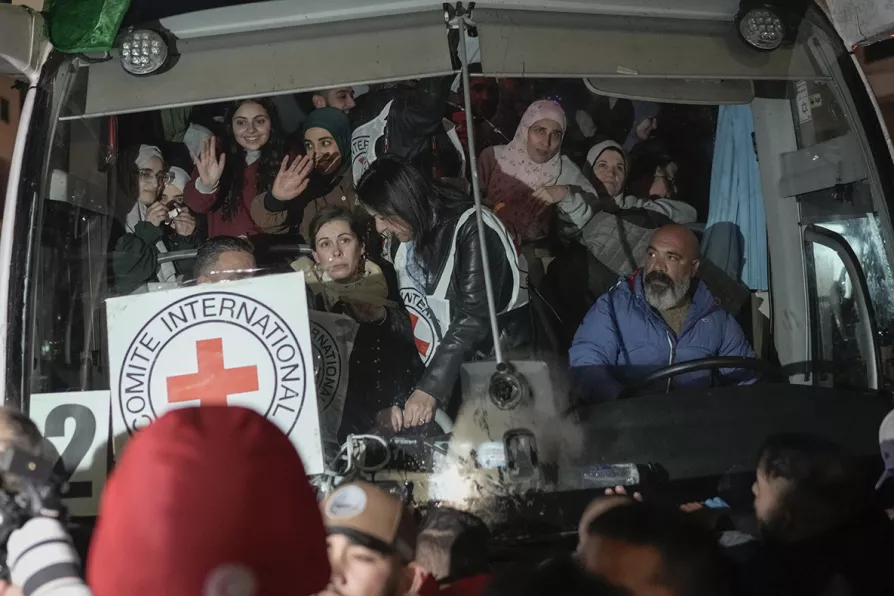90 Palestinian prisoners released from Israeli jails after Hamas releases three Israeli hostages

 Palestinian female prisoners wave from inside a bus as they arrive in the West Bank city of Beitunia, early Monday, January 20, 2025
Palestinian female prisoners wave from inside a bus as they arrive in the West Bank city of Beitunia, early Monday, January 20, 2025
NINETY Palestinian prisoners were released from Israeli jails early today, having been held in horrific conditions, soon after three Israeli hostages left Hamas captivity in Gaza and returned to their home country.
Both sides were torn between celebration and trepidation as the fragile ceasefire appeared to hold.
For the first time in over a year, Palestinians across the war-ravaged coastal enclave began returning to what was left of the homes they had fled, started to check on relatives left behind and, in many cases, to bury their dead.
Similar stories

Meanwhile, Netanyahu sends spy chief to Qatar for ceasefire talks













